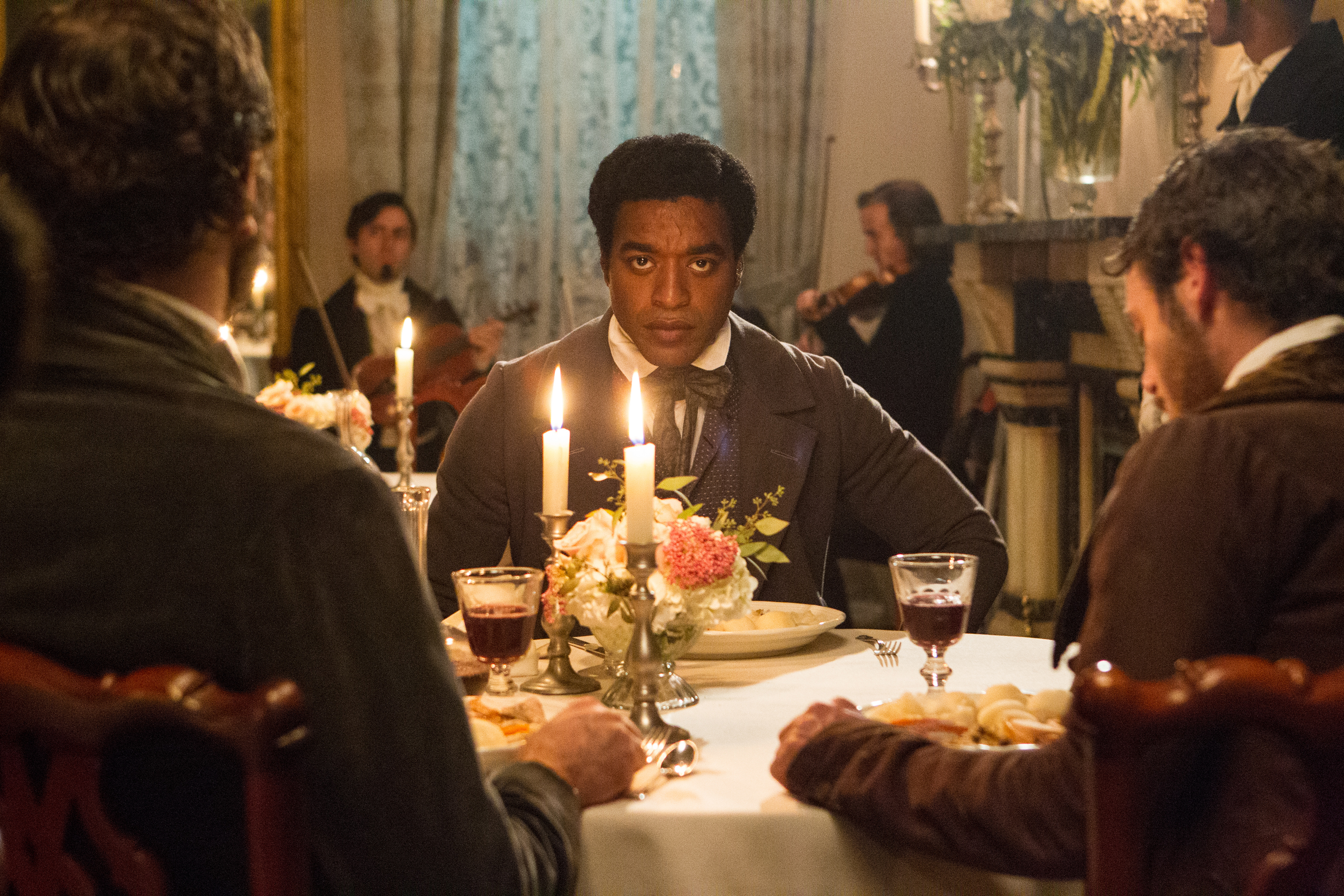12 Years a Slave
Opens Fri., Nov. 1 at Guild 45th and other theaters. Rated R. 133 minutes.
How do you tell the story of something as enormous and horrifying as American slavery? In the case of 12 Years a Slave, the subject is played out on human bodies and in objects: a single sheet of precious foolscap writing paper, the juice of berries, a violin. Instead of taking on the history of the “peculiar institution,” the film narrows to a single story and these scattered things. It is based on a memoir by Solomon Northup, a free man from Saratoga, New York, who was kidnapped and sold into slavery in 1841. He is played by English actor Chiwetel Ejiofor (Inside Man, Dirty Pretty Things), whose Spencer Tracy–like ability to observe and calmly draw us into an experience is quite powerful here.
Solomon—robbed even of his name, he’s called Platt by his captors—passes through the possession of a series of Southern plantation owners. One sensitive slave owner (Benedict Cumberbatch) gives Solomon—a musician by trade—a fiddle, adding the sincere hope that his family may hear Solomon play for many years to come. (That sort of clueless “kindness” is one of the film’s rich veins of horror.) A more physical sort of gash is delivered in flesh-rending ferocity by the cruel cotton farmer Edwin Epps (Michael Fassbender), whose attention also gravitates toward the furiously hard-working Patsey (Lupita Nyong’o).
Patsey, like Solomon, is caught inside the terror of not knowing how to play this hand. Do they keep their heads down and try to survive, or do they resist? The prospect of Patsey becoming her owner’s mistress is suggested in a fascinating scene featuring the great Alfre Woodard. We don’t get to know many enslaved characters, because the perspective, and the confusion, belongs to Solomon. This is no Amistad or Schindler’s List, tackling the big story, but a personal tale (if you’re curious about what happens to supporting characters, forget it). British director Steve McQueen, who developed the film with screenwriter John Ridley, made the fascinating Hunger and the literal-minded Shame, and there’s something deadpan, almost blank, about the way he portrays the fear and malice of this situation. This is effective, even if might occasionally make you wish for the emotion and formal design of a Spielberg.
The film’s and-then-this-happened quality is appropriate for a memoir written in the stunned aftermath of a nightmare. As we get to the end, with slivers of hope and disappointment, the result is effective indeed. (I wish a gnarlier actor had played the small but key role taken by Brad Pitt, one of 12 Years’ producers, but it doesn’t kill the moment.) Along the way McQueen includes idyllic nature shots of Louisiana, as though to contrast that unspoiled world with what men have done in it. The contrast is lacerating.
film@seattleweekly.com







